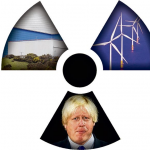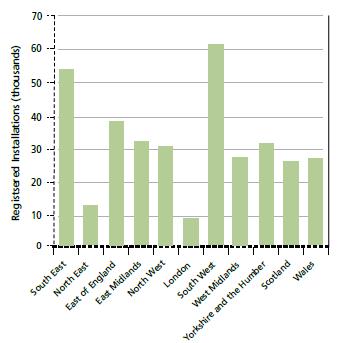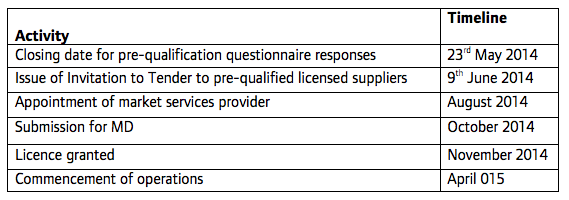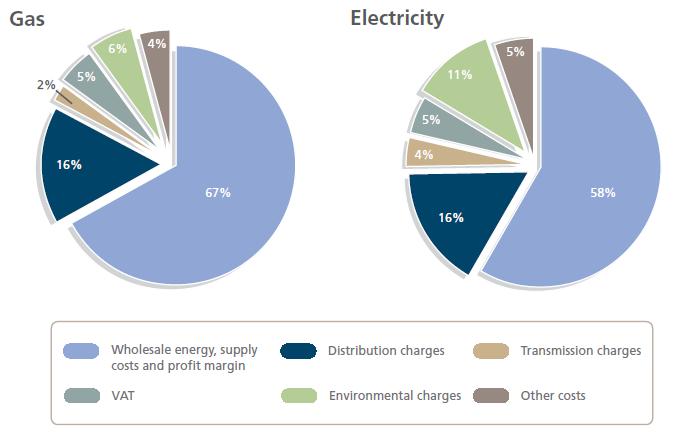Site search:
-
What’s new?
Energy for London Tags
Brent Buildings Camden Carbon Emissions CHP Cities Climate Adaptation Community Heating Community Initiatives Croydon Data DECC Decentralised Energy Distribution ECO Energy Costs Energy Efficiency Enfield FIT Fuel Poverty Funding Green Deal Hackney Haringey Housing Islington Lambeth Library Local Authorities Mayor Newham Ofgem Olympics Photovoltaics Planning RE:FIT RE:NEW Renewable Energy Retrofit Southwark Tower Hamlets Transport Waltham Forest Waste WestminsterEnergy Archives:
- February 2021 (1)
- January 2021 (15)
- December 2020 (15)
- November 2020 (9)
- October 2020 (3)
- August 2020 (5)
- July 2020 (3)
- June 2020 (4)
- April 2020 (10)
- March 2020 (5)
- February 2020 (2)
- January 2020 (3)
- October 2019 (1)
- September 2019 (4)
- August 2019 (2)
- July 2019 (1)
- August 2018 (1)
- November 2016 (8)
- October 2016 (8)
- September 2016 (2)
- August 2016 (8)
- July 2016 (14)
- April 2016 (12)
- March 2016 (16)
- February 2016 (8)
- January 2016 (4)
- December 2015 (1)
- November 2015 (1)
- October 2015 (16)
- September 2015 (3)
- June 2015 (1)
- May 2015 (1)
- April 2015 (1)
- March 2015 (1)
- February 2015 (1)
- January 2015 (1)
- December 2014 (18)
- November 2014 (4)
- August 2014 (8)
- July 2014 (7)
- June 2014 (25)
- May 2014 (8)
- April 2014 (4)
- March 2014 (12)
- February 2014 (7)
- January 2014 (13)
- December 2013 (11)
- November 2013 (15)
- October 2013 (15)
- September 2013 (18)
- August 2013 (5)
- July 2013 (20)
- June 2013 (33)
- May 2013 (8)
- April 2013 (16)
- March 2013 (25)
- February 2013 (14)
- January 2013 (20)
- December 2012 (23)
- November 2012 (23)
- October 2012 (25)
- September 2012 (14)
- July 2012 (12)
- June 2012 (43)
- May 2012 (20)
- April 2012 (8)
- March 2012 (40)
- February 2012 (39)
- January 2012 (40)
- December 2011 (22)
- November 2011 (40)
- October 2011 (33)
- September 2011 (48)
- August 2011 (40)
- July 2011 (58)
- June 2011 (41)
- May 2011 (80)
- April 2011 (38)
- March 2011 (33)
- February 2011 (25)
- January 2011 (24)
- December 2010 (3)
- November 2010 (7)
- October 2010 (6)
- September 2010 (7)
- August 2010 (1)
- July 2010 (2)
- June 2010 (4)
- May 2010 (1)
- March 2010 (3)
- February 2010 (3)
- December 2009 (5)
- November 2009 (2)
- October 2009 (3)
- July 2009 (3)
- June 2009 (1)
- April 2009 (1)
- March 2009 (1)
- February 2009 (1)
- January 2009 (1)
- December 2008 (2)
- October 2008 (1)
- September 2008 (1)
- July 2008 (1)
- March 2008 (2)
- January 2008 (2)
- October 2007 (1)
- September 2007 (3)
- July 2007 (1)
- March 2007 (1)
- February 2007 (3)
- November 2006 (3)
- August 2006 (1)
- February 2006 (1)
- May 2005 (1)
- February 2004 (1)
Tag Archives: Ofgem
Timeline for License Lite
June 2014: Progress continues by the Mayor to obtain a junior electricity supply license – otherwise known as ‘license lite’. A tender was issued in March to start the process of attracting support from a fully licensed electricity supplier to help with the Mayor’s application to Ofgem (details here) and further information was issued by the Mayor in a recent press release ‘Mayor to become London’s smallest electricity supplier‘ which stated that “The ground-breaking move will permit him to offer the capital’s small electricity producers up to 30 per cent more for their excess energy than existing suppliers do, which he will then sell on to TfL, the Met and others at cost price.” The Mayor’s announcement attracted significant media interest including this piece in the Guardian,
A very good paper presented at the GLA’s Investment & Performance Board last week provides some further detail on issues that need to be considered as the ‘License Lite’ process progresses. The paper highlights that:
- A principal risk remains timing because the type of licence application is new to all parties and therefore timing remains difficult to predict.
- There is strong government support for the Mayor’s Licence Lite project. In May 2014 Matthew Pencharz and a GLA officer attended a round table discussion on licence lite chaired by the Secretary of State for Energy and Climate Change, Ed Davey to discuss progress of licence lite.
- A detailed draft economic model has been prepared in consultation with Transport for London, with whom discussions are in train for the purchase by it of electricity supplied from decentralised energy systems by the GLA under its licence.
- The financial outcome of the model is positive, but cannot be confirmed until tenders for the provision of the market services have been received from tenderers who have responded to the preliminary questionnaire during August of this year.
- Selected London boroughs have been briefed and provisionally identified the electricity capacity best sold under licence lite, together with other suitable public sector electricity generating capacity in London.
- The objective is for submission for a Mayoral Decision to approve the grant of the licence to the GLA by Ofgem and to approve entering into the necessary contracts to enable the project to proceed to completion in October 2014. Subject to that, the licence may be granted to the GLA in November 2014, operations commencing in April 2015.
Boris sets out his support for both nuclear & fracking
 15 September 2013: The Mayor has decided to set forth his views on UK energy policy in the national press once again. After writing to The Times back in July (see below), Boris has now penned a piece for The Sun (behind paywall…but fortunately reported elsewhere), where he states that: “the country needs to ‘grow some collective cojones and launch the nuclear energy programme that this country has too long delayed… Next, we must stop pussy-footing around, and get fracking. Even if we have 100s of fracking pads, they are nothing like as ugly as windmills, and they can be dismantled as soon as the gas is extracted.”
15 September 2013: The Mayor has decided to set forth his views on UK energy policy in the national press once again. After writing to The Times back in July (see below), Boris has now penned a piece for The Sun (behind paywall…but fortunately reported elsewhere), where he states that: “the country needs to ‘grow some collective cojones and launch the nuclear energy programme that this country has too long delayed… Next, we must stop pussy-footing around, and get fracking. Even if we have 100s of fracking pads, they are nothing like as ugly as windmills, and they can be dismantled as soon as the gas is extracted.”
The Mayor continues in a similar vein in the article (also reported here ‘Boris on our ‘pathetic apology’ for an energy policy‘) railing against wind turbines – echoing views from a radio interview he undertook on LBC earlier this year (Wind farms couldn’t pull the skin off a rice pudding, says Boris Johnson).
Boris has previously used his weekly Daily Telegraph column to champion gas fracking (Ignore the doom merchants, Britain should get fracking) and much of the commentary for The Sun article was previously set out in a letter the Mayor sent to the The Times a few months ago:
” Sir, Many people have not yet woken up to the reality that the population of London is now growing faster than any city in Europe. As I make clear in our 2020 Vision, this demographic explosion is placing huge demands on our infrastructure — including power generation. It is a tragic comment on Labour’s failure to plan ahead that in only two years our electricity capacity headroom (the difference between demand and supply) will be down to 2 per cent. We will have to ask some of our more energy-intensive industries not to operate at peak times, the kind of policy we last saw in the 1970s. It is time for maximum boldness in energy supply. I fully support the Government’s drive for nuclear power, and if reserves of shale can be exploited in London we should leave no stone unturned, or unfracked, in the cause of keeping the lights on.
Boris Johnson Mayor of London” July 2 2013
That letter was a response to energy regulator Ofgem’s capacity report which set out that “electricity supplies are set to tighten faster than previously expected in the middle of this decade”. Energy security appears to have become a greater concern to the Mayor since raised by London businesses, and has led to the establishment of a London ‘High Level Electricity Working Group‘ coordinated by the GLA.
Whilst security of energy supply issues are a real concern, the Mayor’s choice of solutions are of no real help at all. Nuclear negotiations have stalled over the past year, and even if agreement were reached today, the first power produced by a new nuclear plant is the best part of a decade away – well after the 2015 capacity concerns. Discussions around shale gas have become increasingly polarised: whatever the final outcome, it is unlikely that fracked gas will have any significant role to play in the nation’s energy mix for some time.
Posted in News, Renewable Energy
Tagged Energy Security, Mayor, Natural Gas, Ofgem, Renewable Energy, Wind
Leave a comment
Camden Applies for Gas Supply License
4 June 2013: Camden has applied to energy regulator Ofgem for a gas supplier licence. Camden’s application to Ofgem highlights an extensive property list in the borough that the council has management responsibility for- all of which requires gas supply. The council’s budget code book points to a total spend for the borough’s gas supply of over £12m in 2013/14. The council’s current central purchasing body for gas supply is a company called Laser – this is an energy-buying group providing energy procurement and contract support for 106 local authorities – including many of London’s councils. Laser is a commercial service provided (and established) by Kent County Council.
It’s likely that with this application to Ofgem, Camden is looking for new options with regard to the gas supply to its residents – with an eye on opportunities on how energy cost savings can be made and passed through.
GLA ‘license lite’ to allow opportunities for London DE
May 2013: A recent question to the Mayor provides some useful information on the Mayor’s application to the energy regulator Ofgem for the Greater London Authority to be classed as ‘license lite’ under the electricity supply regulations (see previous post for background). Asked what the process would be if the GLA were successful, the Mayor response was as follows:
“Following grant of the licence the Greater London Authority will enter into agreements with the owners /operators of decentralised electricity generating capacity in London for delivery to the GLA of the electricity to be supplied under the licence, supply agreements with the parties who will consume it and an agreement with a fully licensed electricity supplier for the provision of the necessary technical electricity market services to enable the licence to be operated.”
All of this is conditional however on internal approval within the GLA for the organisation to take on electricity supply operations:
“Acceptance of the licence and commencing operations is conditional on a positive and commercially prudent business model being approved by Mayoral Decision .”
4MW of PV added in London
March 2013: Ofgem’s new FIT quarterly report provides an update on the take-up of Feed in Tariff eligible technologies across the UK. London (as at 31 December 2012) has a total of 39.38 MW of FIT renewable capacity installed – as with the rest of the country, the vast proportion of this capacity is made up of PV (99% in London). This is an increase of 4.25 MW of capacity over the previous quarter.
Progress remains slow in London which – with the North East – trails all other UK regions by a significant margin. See graph from FIT report below highlighting the number of installations by region.
 Previous posts discuss London’s slow performance on FIT take up here.
Previous posts discuss London’s slow performance on FIT take up here.
Further background on ‘Licence Lite’
March 2013: Some more helpful detail on the complex area of ‘Licence Lite’ (covered in some earlier posts here and here) can be found in the following two briefs:
- The excellent Cornwall Energy were commissioned by the GLA and others to look at this issue and have produced the following summary article; and
- The output of Cornwall Energy & law firm Nabarros work – undertaken for Haringey – can be found on Haringey 4020 website here
And some more tricky detail on the issue in the following helpful blog. Energy for London will monitoring process on this development over the coming months.
FT: ‘London seeks energy supply licence’
14 March 2013: The GLA has recently approved a process to secure a junior – or ‘lite’ – electricity supply licence – the benefits of which are set out in an earlier post here.
The Mayor recently updated progress on this work stating that:
“Technical assessments of the services to be procured from the electricity market and regulatory matters needing to be addressed have been made. The GLA met Ofgem (the electricity regulator) at the beginning of February 2013 to enable a formal application for a licence.”
And the FT has today reported on this work stating: “The GLA is the first public authority to apply for a so-called Licence Lite, an electricity supply permit that would allow it to buy excess electricity from London’s boroughs and sell it back at cost price to other public bodies in the capital, such as the police or NHS hospitals.” The GLA press release is available here.
The report goes that:
“Several London boroughs run generators to power public buildings, such as Islington’s Bunhill Heat and Power project, which uses a gas-fired generator to heat homes and local swimming pools. Westminster operates two gas-fired generators in Pimlico that heat homes, businesses and three schools. Excess energy produced at these sites is returned to the National Grid through a mainstream supplier at a variable wholesale rate of about 5 pence per kWh. The GLA would offer 20 to 30 per cent more for the boroughs’ excess as a way of encouraging growth in the low-carbon energy infrastructure. Ofgem, the energy regulator, brought in Licence Lite in 2009 but no permit has yet been issued. Some blame uncertainty over the legal obligations a new supplier would face, as well as lack of interest from existing industry suppliers. Licence Lite holders are required to contract with a mainstream supplier to provide regulatory and operational support.”
“A dozen London boroughs, which together are capable of producing 76MW, could benefit from the scheme, which is intended for launch in 2014, the GLA said. If the measure is a success it would also be considered for private sector energy producers in London. By raising the returns on the energy produced by small suppliers, the GLA said, the move could help attract more than £8bn of investment in electricity infrastructure in the capital up to 2025.“
FITs – Tariff Table 1 April 2013 PV Only
February 2013: Ofgem have posted an updated list of tariff rates under the Feed-in Tariff scheme for PV installations. A lot more involved now! Download here.
Household energy bills explained
18 January 2013: Ofgem have updated their useful factsheet on what makes up household energy tariffs (download here).
- It reflects gas and electricity prices in December 2012
- The average gas bill for a standard account is £811 and for electricity it is £531
- The average bills above are based on average annual consumption figures of 3,300 kWh for electricity and 16,500 kWh for gas
- Environmental costs amount to 6% of gas bills and 11% of electricity bills – and currently amount to around £82 on a total energy (gas & electricity) annual bill.
Other references that go into this household energy bills in more detail are:
- DECC’s Quarterly Energy Prices
- Energy UK’s Energy supply margins reports undertaken by NERA
Government Policy on generation of electricity by local authorities
17 December 2012: John Pugh, MP for Southport, has asked a useful parliamentary question around what the Government’s position is on promoting the generation of electricity by local authorities. Apparently it has one.
Col 534W: John Pugh: To ask the Secretary of State for Energy and Climate Change what his policy is on the generation of electricity by local authorities; and if he will make a statement.
Gregory Barker: In 2010, we gave local authorities the power to sell electricity generated from renewable sources. It is therefore up to local authorities to generate and sell electricity if they wish and we are encouraging them to do so where this is appropriate. We have also facilitated this through ‘lite’ electricity supply licence, which would allow a local authority district heating operator to sell electricity at retail rates to consumers.
We are also supporting community ownership of localised renewable energy projects through the Feed-in-Tariffs scheme. Local projects engage neighbourhoods and communities in becoming involved with generating local heat and power e.g. Combined Heat and Power with District Heating (CHP-DH) networks in Woking, Southampton, Nottingham and Sheffield.
Local authorities also have a role in encouraging energy efficiency take up, including the Green Deal, and looking after consumer interests, for example, through the pioneer places and core cities initiatives and through supporting or running collective switching schemes.
Some points on this:
- Further to the link to the 2010 DECC news release (above) granting powers to local authorities to be able to sell renewable power – additional information is provided in this letter from the then Secretary of State to local authority Chief Executives ‘Unlocking Local Power‘ .
- Little progress has been made on the so-called ‘lite’ electricity supply licence: no local authorities have actually applied to hold a licence since Ofgem introduced this opportunity in March 2009. The GLA have however recently announced that they will – more on this in an earlier post.
- For the latest on FITs for Community Energy schemes – see the following post.
- All the neighbourhood heat and power schemes referenced in the PQ – though excellent – were all developed decades ago. Whilst good to see that these schemes are still expanding their heat networks, it would have been more encouraging to highlight progress in some new city-wide district heating schemes – however Government support in this area has been extremely limited.
Posted in News
Tagged Community Heating, Community Initiatives, FIT, Local Authorities, Ofgem, Renewable Energy
Leave a comment
FIT: Draft Guidance for Community Energy and School Installations
December 2012: Ofgem draft guidance document, open for consultation. It provides specific guidance for solar PV community energy and school installations on how to benefit from provisions available for the FIT scheme.
Further information on community energy and school installations can be found in the following DECC FIT FAQ document and the latest FIT rates here.
GLA to apply for a ‘junior’ electricity supply licence
29 October 2012: The GLA are apply to the energy regulator Ofgem for a ‘junior or sometimes known as ‘lite ‘ electricity supply licence. This allows for smaller electricity generators to sell their electricity at market value. The approval form sets out that “the application to Ofgem [is] for a licence lite licence so the GLA can buy the electricity produced by London boroughs and other public sector decentralised energy generators in London and sell it at proper market rates”. This project builds on an earlier GLA project (details here).
The background to this issue is actually quite simple but solutions complex! Luckily some helpful commentaries are posted on the web by Carbon Limited and also law firm Nabarros. At the heart of the argument is that smaller generators are often in poor bargaining positions with the electricity retail market when wanting to sell their electricity. The true value of the electricity generated by a decentralised CHP, or PV array, could be realised by selling the electricity direct to consumers (very roughly say, around 12-14 pence per unit) rather than the wholesale market (again roughly, but say 4-6 pence per unit).
However, to do this, an electricity supply licence (for generators exporting more that 2.5 MW) is, in most instances required, and holding such a licence places a number of very complex and costly requirements on the licence holder, effectively creating a barrier to entry for smaller generators in this market. Recognising this situation, Ofgem introduced arrangements for a new ‘lite supply licence’ which – in theory – would allow the holder to sell their electricity more widely but provided exemptions to these smaller generators from the requirement to be involved in a number of complex electricity market processes, as would normally be required under a ‘full’ supply licence conditions (see the ‘Final Proposals document by Ofgem posted here for more on this).
In practice however, though a project with a number of London boroughs looked at this issue earlier this year, no participants have applied to hold such a licence. Hence, with this action, the GLA is looking to test Ofgem’s process and apply for this new licence and support the development and production of decentralised energy supply in London.



